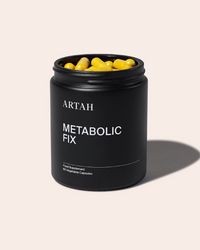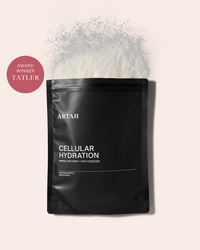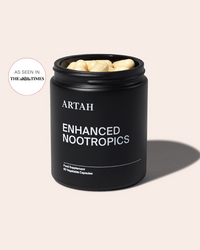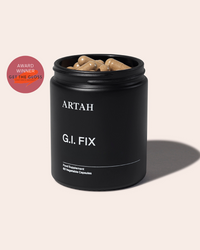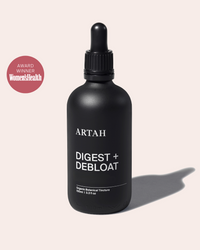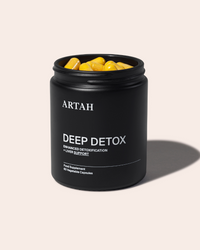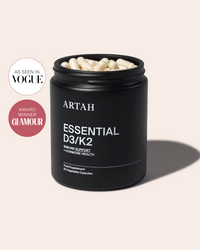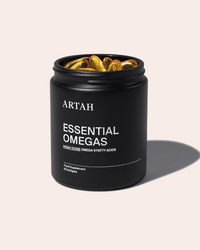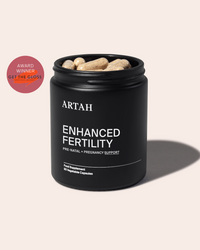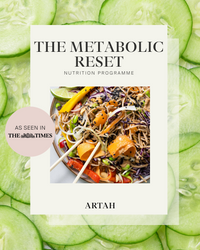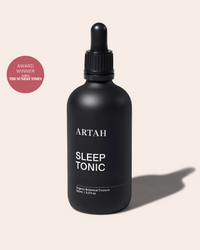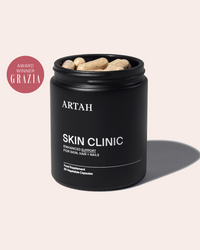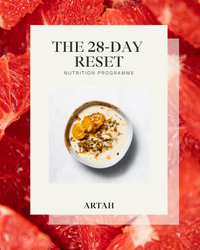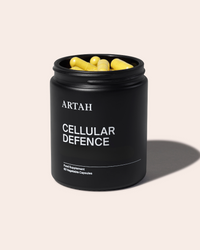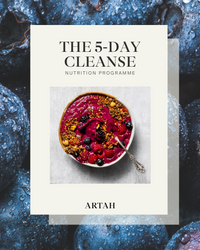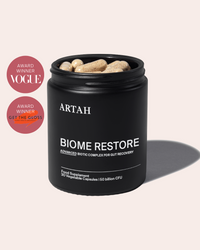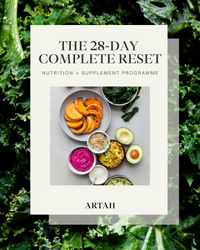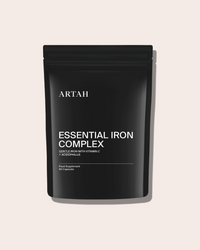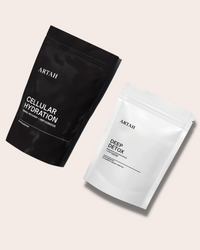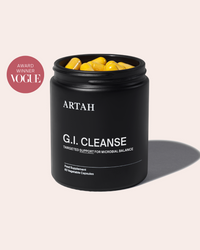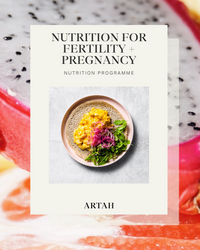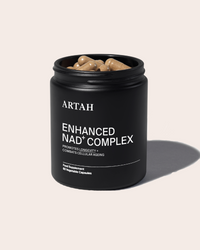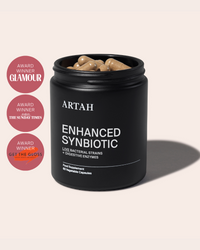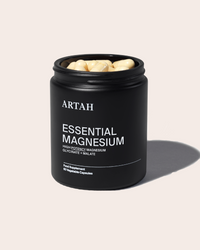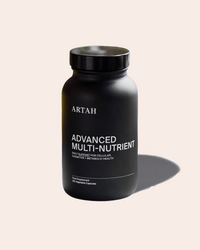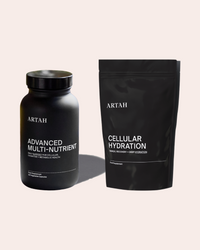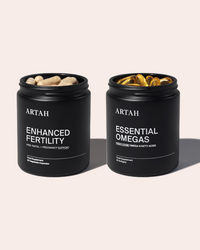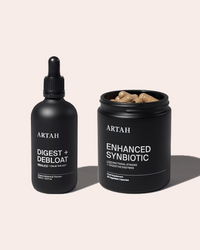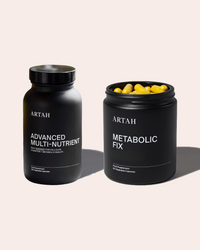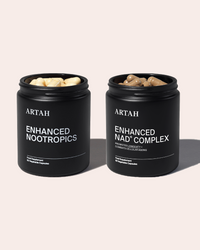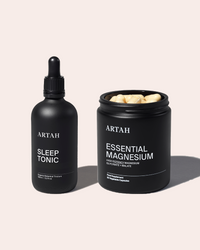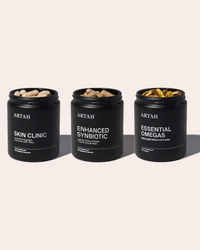How to Support Your Liver During the Holidays
In Eastern medicine, the liver is responsible for regulating our emotions, digestion, elimination, reproductive function, and maintaining Qi – our vital energy. In Western medicine, it’s our main organ of detoxification, is critical to our metabolism, and is responsible for over 500 reactions in the body. In short, it has a lot to do. And, since we tend to do more of the things that require some extra detoxification and metabolic energy during the holidays, supporting the liver throughout the festive season can help us feel, function, and look better on the other side. Here are a few of our favourite things to do, eat, and take for essential liver support.
Do This....
Avoid Unnecessary Toxins:
A few weeks ago on the journal we wrote about the importance of being picky with what types of sweets to indulge in over the holidays, and the same applies to toxins. Whilst it’s likely that you’re not consuming toxins intentionally, certain foods and drinks will contain more chemical toxins than others. We’re already making our liver work a little harder over the holidays, so in between celebrations, avoid things like nitrates/nitrites, msg, and rancid seed oils, found in processed meats, deep fried restaurant and take out foods, and convenience foods. We’re also going to put certain types of sugars on this list, like high fructose corn syrup, glucose-fructose syrup, invert syrup, fructose syrup, and of course, chemical sweeteners like aspartame and sucralose. To keep your exprosure down from alcohol, whenever you’re hosting try to choose organic, natural wines, which will be free from the over 75 chemicals approved for use in wine in the UK and EU.
Stimulate Your Detox Pathways:
Whether you’re a lymphatic drainage kind of detoxer, love Epsom salt baths, are committed to skin brushing or opt for saunas, adding in some supportive sessions throughout the holidays can help your body eliminate toxins through the skin, urine, and bowel. Short on time? It’s ok, you can multi-task. Brisk walking, breathwork, cardio, and yoga are all great for detoxification, so you can combine your detox support with fitness or stress reduction.
Eat This....
Golden Kiwi:
Oranges are usually the go-to fruit that comes to mind when we think of Vitamin C, but they’re by no means the best source. With three times more Vitamin C than an orange, golden kiwis are powerhouses when it comes to fibre and antioxidants like lutein and phenols, all of which help support the liver. It’s also a great functional food for gut health; studies have shown that daily consumption of golden kiwi is as effective as taking psyllium fibre for the treatment of constipation. (1)
Brussels Sprouts:
As if we didn’t love cruciferous vegetables enough, Brussels sprouts also contain Alpha Lipoic Acid (ALA), a universal antioxidant that’s found in all cells. Not only is ALA key in supporting detoxification, but studies have also inked it with positive outcomes in the areas of blood sugar management, inflammation, and nervous system function. (2) In naturopathic circles, sprouts are often referred to as the ultimate liver cleansing food, and since they’re everywhere at the moment, it’s a nice time to load up on natural liver support. Their bitter component stimulates digestion, and they are rich in both soluble and insoluble fibre, meaning softer, larger poops (sorry/not sorry). We love slicing them finely and roasting them for a warm sprout slaw. Add red onion (for immune supporting quercetin), pistachio and dried cranberries for an extra festive, but functional, boost.
Grapefruit:
Whilst all citrus has protective phytonutrients, grapefruits are amongst some of the best foods for liver support. They contain naringin and naringenin, which reduce inflammation and protect liver cells. It can also help slow down phase 1 detoxification of the liver; which is no bad thing. If we process toxins through phase 1 too quickly, phase 2 becomes overwhelmed and we experience a buildup of toxic byproducts, waiting to be transformed and excreted. These toxins can be harmful (more so than they were when they started), so balancing out phase 1 and 2 detoxification of the liver is essential. We love using fresh grapefruit as a liver tonic mixed with cold pressed, extra virgin olive oil, a little lemon, and a pinch of salt. Mix everything together and take it with a light, plant-based soup, steamed vegetables or broth in the evening to support elimination.
Other Cholagogues:
Cholagogue are foods and herbs that stimulate the production and release of bile from the liver and gallbladder, an essential part of healthy digestion and motility. Cholagogue foods include turmeric, cold pressed olive oil, grapefruit, raw beets, dandelion greens, lemon, fennel, cinnamon, fenugreek, endive, artichoke, cilantro, chicory, coffee (!), radish and rhubarb, so aim to include these functional foods in between indulgences to help your liver along.
Take This....
Deep Detox:
Deep Detox is specifically designed to support the liver, but two of our favourite ingredients from this blend are Milk Thistle and Dandelion. Milk Thistle is one of the most studied herbs for liver support. It supports bile production, has anti-inflammatory activity, is a potent antioxidant, and protects the liver from damage. (3) It also helps us maintain healthy levels of another important antioxidant - glutathione. Glutathione is depleted when we drink alcohol, toxins, or other reactive oxygen species, which is why we love including Deep Detox in our holiday regime. Dandelion is a cholagogue, bitter digestive stimulant, and anti-inflammatory herb, which has has the added bonus of being a potassium sparing diuretic, which means it can help flush out water retention without depleting electrolytes like some of the pharmaceutical diuretics. Which brings us onto.....
Electrolytes:
Our liver needs potassium and magnesium to carry out its functions, and most of us aren’t getting enough of these two essential electrolytes. We need a whopping 4,700mg of potassium each day, so between coffee, alcohol, exercise, and a lack of potassium rich foods, it's challenging to meet our needs; in fact, the average intake from food in adults is 3,016 mg for men and 2,320 mg for women (4). Potassium rich foods include sweet potato, beet greens, spinach, beans, and tomatoes; there’s about 350mg of potassium in one sweet potato these days, so there’s a long way to go to hitting our targets even with targeted foods. One serving of Cellular Hydration gives you over 500mg of potassium, alongside a nice dose of magnesium, Vitamin C and more.
REFERENCES:
-
Bayer SB, Heenan P, Frampton C, Wall CL, Drummond LN, Roy NC, Gearry RB. Two Gold Kiwifruit Daily for Effective Treatment of Constipation in Adults-A Randomized Clinical Trial. Nutrients. 2022 Oct 6;14(19):4146. doi: 10.3390/nu14194146. PMID: 36235798; PMCID: PMC9572406.
-
Fay Paxton. Foundations of Naturopathic Nutrition. Routledge; 2020
-
https://www.ncbi.nlm.nih.gov/books/NBK541075/: Milk Thistle Fact Sheet, National Institutes of Health
-
National Institutes of Health: Potassium fact sheet for professionals. https://ods.od.nih.gov/factsheets/Potassium-HealthProfessional/#h7






